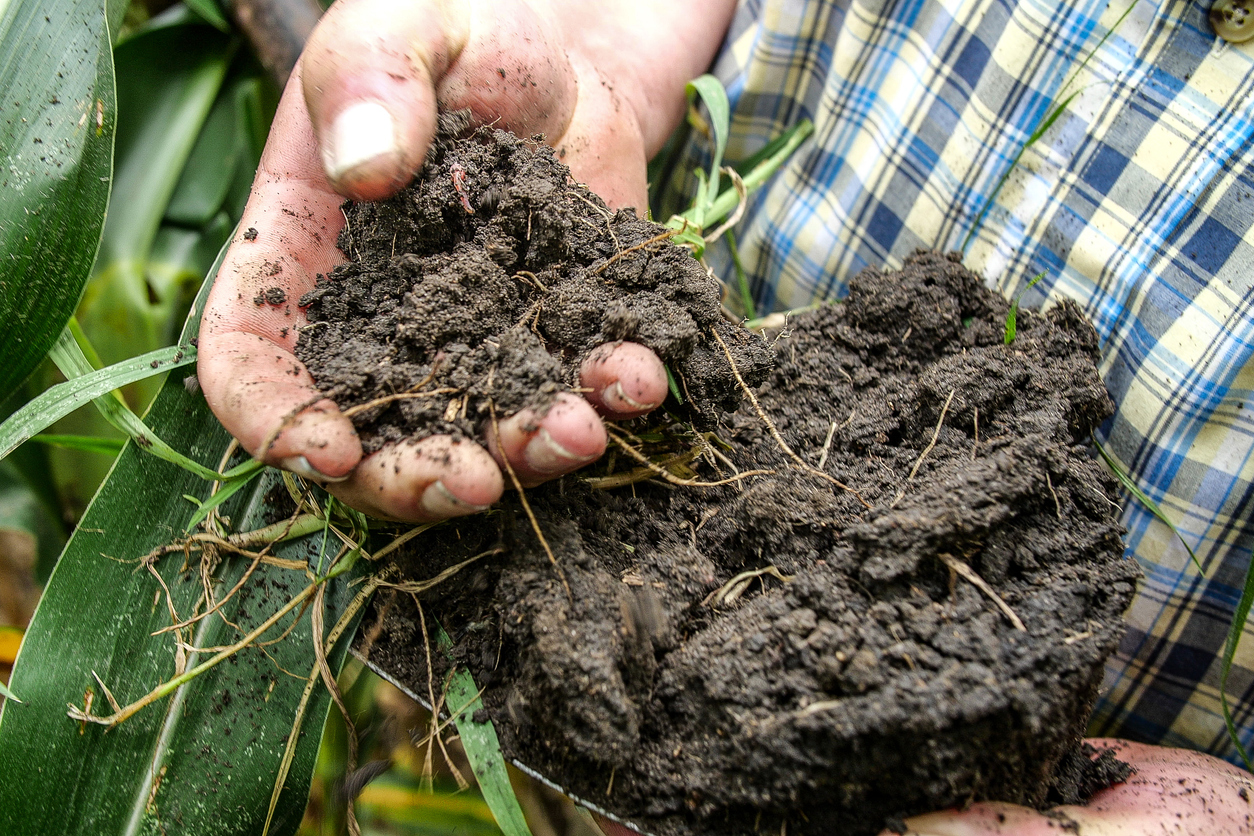Blocking federal funding for R&D projects mentioning ‘climate change,’ ‘greenhouse gas emissions,’ and related terms “would directly undermine US farmers’ competitiveness and long-term output,” warns a new report from environmental think tank The Breakthrough Institute.
The Trump administration has already cancelled agricultural research projects funded by USAID, frozen funds for USDA’s Climate-Smart Commodities initiative, and proposed terminating USDA conservation projects that mention climate change.
According to a leaked USDA memo the USDA’s agricultural research service (ARS) says agreements with terms such as “climate change” or “climate smart agriculture” should not be submitted to the “Exceptions Request to the Agreements Moratorium List.”
It is unclear what this memo means, Breakthrough Institute director of food & agriculture Dan Blaustein-Rejto told AgFunderNews. “Our best interpretation is that it applies to grants and cooperative agreements that ARS has with universities and other institutions where they effectively contract out some activities, specifying that those agreements can’t be submitted in requests to exempt work from a moratorium or freeze.
“As of now I don’t know of any specific labs or projects that have been cancelled or frozen for being climate-related,” he said.
“However, it is clear that USDA’s other primary research agency, the National Institute of Food and Agriculture (NIFA), has had an indefinite freeze on accepting new grant proposals while all of its requests for applications are under review to ensure they align with the President’s executive orders. Many NIFA-funded projects involve ARS, so this freeze may affect their work if it continues.”
AgFunderNews has contacted USDA for clarification on the memo, which Rep. Chellie Pingree (D) told her Instagram followers “makes zero sense.”
“It’s not surprising that this administration would go after anything they deem ‘woke,’ or at all related to climate change,” she told Barn Raiser. “But to target basic terms that are fundamental to agricultural research is beyond the realm of reason. If these words are being used in a research project, then maybe its getting canceled, maybe it can’t be funded, it’s not even clear.”
Ag R&D can raise yields, lower input costs
The Breakthrough Institute estimates that up to $424 million in federal funding for climate-related food & ag projects could be at risk based on a review of 100,000+ federal grant records featuring climate-related keywords.
“Many of the projects that mention these terms aren’t primarily about climate mitigation,” noted Blaustein-Rejto. “Instead, they aim to boost productivity such as by improving fertilizer efficiency, enhancing soil health, or increasing livestock feed efficiency.”
And indiscriminately freezing funding for such projects would be hugely counterproductive, even if you don’t care about the environmental impact of farming and focus purely on economics, added Blaustein-Rejto, who conducted the analysis with Benjamin Goren.
“Practices such as no-till farming and cover cropping can enhance soil fertility, improve moisture retention, and reduce erosion—outcomes that directly boost crop yields and decrease the need for costly inputs like irrigation and fertilizers. Federally funded research has played a key role in identifying when, where and how no-till and low-till farming increases yields and where adoption may be less beneficial.”
Similarly, federally-funded research on nitrogen-fixing soil microbes could enable farmers to reduce fertilizer application rates, which would lower costs as well as reduce greenhouse gas emissions, argue Blaustein-Rejto and Goren.
Meanwhile, research is needed to determine whether livestock methane reduction strategies could enhance feed productivity, they note.
“Investing in productivity-enhancing R&D typically reduces emissions more cost-effectively and permanently than many efforts directly focused on helping farmers sequester carbon or reduce emissions. For farmers, improved seeds, practices, and technologies can raise yields, lower input costs, and increase resilience to pests, disease, and climate stress.”
Government programs support early-stage basic research
While the private sector has an incentive to invest in productivity-enhancing research, public R&D fills many critical gaps in private funding, they add. “Government programs support early-stage basic research; high-risk, high-reward efforts; projects that require coordination across many public and private actors; and projects that benefit smaller markets that the private sector poorly serves.”
Historically, they claim, public R&D investments have spurred innovations such as hybrid crops, pest-resistant plants, and more efficient irrigation methods—critical drivers of productivity growth.
“In particular, USDA should strive to better support early-stage initiatives that could dramatically increase yields and reduce food prices. These areas include developing low-cost and effective microbial fertilizers, livestock breeds genetically engineered to be disease-resistant, and next-generation solutions to reducing the amount of energy cattle lose as methane.”
The Department of Defense pioneered work to support such high-risk, high-reward R&D in other fields, they observe. “USDA should follow their lead.”
Abrupt funding reductions disrupt multi-year projects
Ultimately, claim the authors, agricultural research requires sustained investment to generate meaningful innovations: “Abrupt funding reductions disrupt multi-year projects, squander past investments, and erode America’s competitive advantage in global agriculture.”
Any reallocation of funds must therefore be “carefully done to avoid halting valuable research and wasting taxpayer funds as well as to ensure that funds are redirected toward promising research areas.”
The report was published as Politico reported that USDA aims to cut roughly 30,000 employees, or about 30% of its workforce to “return the Department to a customer service focused, farmer first agency.”
Further reading:





